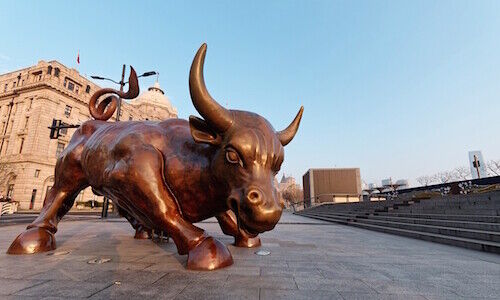In order for China’s market rally to sustain and not fizzle out, the consensus amongst banks is that the delivery of strong fiscal stimulus down the line is required.
After being rangebound for most of 2024, Chinese equities have been on a surge as of late. A flurry of easing measures and a strong tone expressing support during an unscheduled Politburo meeting chaired by President Xi Jinping have been cited as drivers for improved market sentiments.
Will the rebound be short-lived, similar to those witnessed in recent years? If not, what will it take for the rally to be sustained?
More Steam in the Short-Term?
According to a note by Standard Chartered, the equity rally could extend in the short term due to two factors. First is the inexpensive valuation, with the MSCI China index still taking at multiple of below 11 times. Second is the light positioning, with a portion of global investors holding zero exposure to Chinese assets.
In contrast, Bank of Singapore said in a note that it believes that Chinese equities could «consolidate in the near-term given the sharp overshoot».
Easing Required for Long-Term
But in the long-term, there is consensus amongst banks that a sustained rally will require more easing, particularly from fiscal stimulus.
«[W]e cannot rule out that this could be the start of a sustainable bull market if Beijing delivers sufficiently sizeable stimulus to successfully drive a turnaround in macro fundamentals,» explained Bank of Singapore. «In the event of significant further stimulus ahead, the potential impact of a 'whatever it takes' policy push driven by President Xi in a centrally led economy like China should not be under-estimated.»
«Follow-through needed to sustain the rally. Investors considering China exposure must also recognize that the full scope, scale, and implementation of stimulus remain uncertain, and that from a growth perspective, a fundamental turnaround will likely require additional fiscal support for the property market,» UBS added in another note.
Market Outlook
Standard Chartered’s «base case» range for the Hang Seng Index is 20,000-22,500. It has a «bull case» range of 22,500-24,500 if fiscal spending surpasses market expectations and a «bear case» range of 18,000-20,000 if fiscal support is lower with risk-off sentiment from Middle East tensions and US elections.
UBS expects an upside of low-single digit percentage for the fourth quarter of 2024 and high single-digit upside in 2025, subject to the trade policy under the new US administration.

























